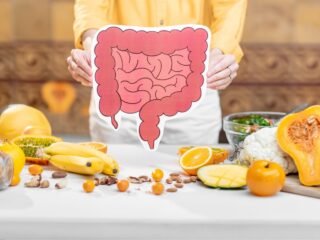New Delhi, 13 October, 2025: Standing at the threshold of 21st century, sleep is often treated as a luxury rather than a necessity. But what many people don’t realize is that sleep is one of the most powerful regulators of our hormones — and by extension, our weight, mood, and energy levels.
When you consistently get enough restorative sleep, your body maintains hormonal balance, supports metabolism, and boosts emotional well-being. When you don’t, everything from your appetite to your mood can spiral out of sync. Understanding this sleep-hormone connection can help you take back control of your health.
Let’s explore how sleep influences key hormones and why good rest is essential for a healthy body and mind.
1. How Sleep Affects Your Hormones
Hormones are your body’s chemical messengers, coordinating everything from hunger and metabolism to mood and immune function. Many of these hormones follow a circadian rhythm, meaning they rise and fall based on the time of day — and quality sleep plays a crucial role in regulating these patterns.
When sleep is disrupted, hormone production and timing are thrown off balance. This can lead to:
- Increased hunger and cravings
- Slower metabolism
- Higher stress levels
- Weakened immunity
- Mood swings and fatigue
Several hormones are especially sensitive to sleep patterns, including cortisol, melatonin, leptin, ghrelin, and insulin. Let’s break down how these key hormones are affected.
2. Cortisol: The Stress Hormone
Cortisol is a hormone produced by the adrenal glands that helps regulate your metabolism, immune response, and energy levels. Normally, cortisol levels are highest in the morning to help you wake up and decrease throughout the day.
However, when you don’t get enough sleep, cortisol levels stay elevated for longer. This can:
- Increase stress and anxiety
- Raise blood sugar levels
- Disrupt your immune system
- Make it harder to fall asleep the next night
Chronic sleep deprivation creates a vicious cycle: high cortisol makes it harder to sleep, and lack of sleep raises cortisol even more. Over time, this hormonal imbalance can lead to weight gain, fatigue, and mood instability.
3. Melatonin: The Sleep Hormone
Melatonin is often called the “sleep hormone” because it signals your body that it’s time to rest. Its production is influenced by your exposure to light — increasing in the evening and decreasing in the morning.
When your sleep schedule is irregular or you’re exposed to too much artificial light at night, melatonin production is suppressed. This leads to:
- Trouble falling asleep or staying asleep
- Lower sleep quality
- Daytime fatigue and irritability
- Disruption in other hormonal rhythms
Consistent sleep and a dark, calm environment at night help keep melatonin levels balanced, supporting not only good sleep but overall hormonal harmony.
4. Leptin and Ghrelin: Appetite Regulators
Leptin and ghrelin are two powerful hormones that control hunger and satiety.
- Leptin signals your brain that you’re full.
- Ghrelin triggers feelings of hunger.
When you don’t get enough sleep:
- Leptin levels decrease, meaning your body doesn’t feel as satisfied after eating.
- Ghrelin levels increase, leading to stronger hunger cues and cravings.
- You’re more likely to crave high-calorie, sugary, or fatty foods for quick energy.
This hormonal imbalance explains why lack of sleep is strongly linked to weight gain and overeating. Even just one night of poor sleep can disrupt leptin and ghrelin levels.
5. Insulin: The Blood Sugar Regulator
insulin is a hormone that helps your cells absorb glucose from your bloodstream to use as energy. Poor sleep interferes with insulin sensitivity, meaning your body becomes less efficient at managing blood sugar levels.
This can result in:
- Higher blood sugar levels after meals
- Increased fat storage
- Greater risk of type 2 diabetes over time
When insulin isn’t working properly, your energy levels also suffer. You may experience mid-day crashes, brain fog, and cravings for sugar to boost your energy.
6. Growth Hormone: Repair and Recovery
growth hormone is primarily released during deep sleep. It’s responsible for repairing tissues, building muscle, and supporting healthy metabolism. If your sleep is interrupted or too short, your body produces less growth hormone.
This can lead to:
- Slower muscle recovery after exercise
- Reduced muscle mass over time
- Sluggish metabolism
- Weakened immunity
This is why athletes and people focused on fitness emphasize getting quality sleep — it’s during sleep that your body actually builds and repairs itself.
7. Sleep and Weight Control: The Hidden Hormonal Link
Many people focus on diet and exercise for weight management but overlook the critical role of sleep. When hormones like cortisol, leptin, ghrelin, and insulin are out of balance due to poor sleep, your metabolism suffers, cravings increase, and fat storage goes up.
Here’s how lack of sleep affects weight:
- Increased appetite due to high ghrelin and low leptin.
- Higher cravings for sugar and carbs.
- Slower metabolism from disrupted growth hormone and cortisol imbalance.
- Impaired insulin sensitivity, promoting fat storage.
- Lower motivation to exercise due to fatigue.
In fact, research has shown that adults who regularly sleep less than 7 hours per night are more likely to gain weight or struggle to lose it, even if they maintain a healthy diet.
8. Sleep and Mood Regulation
Sleep doesn’t just affect physical health — it has a profound impact on your mental and emotional well-being. When your body doesn’t get adequate rest, the balance of mood-regulating hormones and neurotransmitters is thrown off.
- Cortisol stays high, increasing stress.
- Serotonin and dopamine levels fluctuate, affecting mood and motivation.
- Melatonin disruption leads to irritability and low energy.
- Fatigue makes it harder to cope with daily stressors.
Chronic sleep deprivation has been linked to depression, anxiety disorders, and emotional burnout. Restful sleep supports stable moods, better focus, and a more resilient mindset.
9. Boosting Energy Through Better Sleep
Energy isn’t just about caffeine or willpower — it’s about hormonal balance. When you sleep well:
- Cortisol follows a healthy rhythm, giving you energy in the morning and calm at night.
- Melatonin signals proper rest and recovery.
- Insulin and growth hormone keep your metabolism efficient.
- Your body maintains stable energy throughout the day.
Poor sleep, on the other hand, leaves you dependent on stimulants, sugar, or sheer determination to get through the day — none of which can truly replace natural energy regulation.
10. How to Improve Your Sleep-Hormone Balance
Fortunately, improving your sleep can quickly restore hormonal balance. Here are some practical steps:
- Maintain a consistent sleep schedule. Go to bed and wake up at the same time daily, even on weekends.
- Create a relaxing bedtime routine. Reading, gentle stretching, or breathing exercises can help signal your body to wind down.
- Limit screen time before bed. Blue light suppresses melatonin production. Try turning off devices at least 1 hour before sleep.
- Optimize your sleep environment. Keep your room dark, cool, and quiet to promote deeper sleep.
- Avoid late-night caffeine or heavy meals. These can interfere with your body’s ability to fall and stay asleep.
- Get morning sunlight. This helps regulate your circadian rhythm, improving both melatonin and cortisol cycles.
- Exercise regularly. Physical activity supports deeper sleep and better hormonal regulation — just avoid intense workouts too close to bedtime.
Even small improvements in your sleep routine can lead to noticeable changes in your weight, mood, and energy levels.
11. When to Seek Professional Help
Sometimes, despite good habits, people struggle with chronic sleep issues. This could be a sign of an underlying problem such as insomnia, sleep apnea, or hormonal imbalances.
If you consistently:
- Struggle to fall or stay asleep
- Wake up feeling tired despite enough hours in bed
- Experience significant mood swings or weight fluctuations
- Rely heavily on caffeine to function
…it may be time to consult a healthcare professional. Addressing sleep disorders can have a dramatic impact on your hormonal health and overall well-being.
12. Final Thoughts: Rest Is a Health Power Tool
Sleep is not just “downtime.” It’s an active, restorative process that keeps your hormones — and your entire body — in balance. When you prioritize rest, you support the optimal function of cortisol, melatonin, leptin, ghrelin, insulin, and growth hormone, all of which directly affect your weight, mood, and energy.
In short:
- Poor sleep = hormonal chaos, weight gain, fatigue, and stress.
- Quality sleep = hormonal harmony, steady energy, better mood, and a healthier body.
So if you’re trying to lose weight, boost your energy, or simply feel better each day, don’t just focus on food and exercise — make sleep a top priority. Your hormones — and your future self — will thank you.






